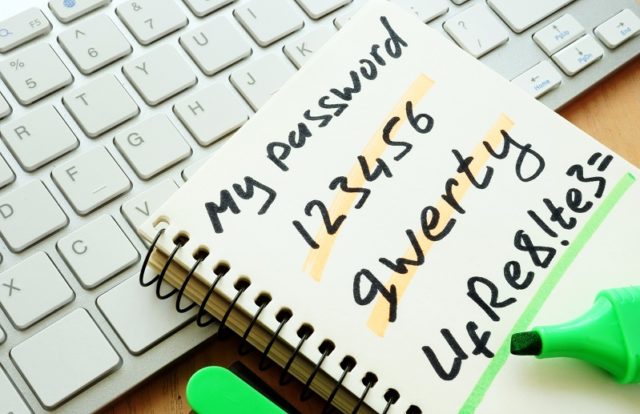
One cannot ignore the importance of a strong password while improving security online. Using hard-to-guess passwords or passphrases provide optimum security to your devices and online accounts. However, despite several security awareness programs, users fail to form strong passwords, leaving their online security at risk.
Recently, the National Cyber Security Centre (NCSC) of the U.K. issued a warning to its citizens to use stronger and unique passwords, after a survey revealed that 15% of Britishers use their pet’s name as passwords to most of their online accounts. Apart from their pet’s names, most of the Brits often use easy-to-guess passwords including family members’ names (14%), a significant date (13%), or their favorite sports team (6%).
Besides, 6% of the users admitted using “password” as all or part of their password. This makes it easy for threat actors to break into millions of accounts by using simple trial-and-error password guessing techniques. The NCSC recommended users to have passwords comprising at least three different words.
The Bright Side
While some users are repeating the same mistakes over and over, nearly 27% of the participants stated that they now have four more new password-protected accounts compared to last year, with 6% reported to have added more than 10 new accounts last year.
NCSC Director for Policy and Communications, Nicola Hudson, said “We may be a nation of animal lovers, but using your pet’s name as a password could make you an easy target for callous cybercriminals. I would urge everybody to visit cyberaware.gov.uk and follow our guidance on setting secure passwords which recommend using passwords made up of three random words. You can even use our Cyber Action Plan tool to generate tailored, free of charge advice to improve your security against online attacks.”
Boosting Password Security
The NCSC’s Cyber Aware campaign advised users and organizations to follow certain password practices to enhance online security. These include:
- Use a strong and separate password for your email. If a hacker gets into your email, they could reset your other account passwords and access information you have saved about yourself or your business. Your email password should be strong and different from all your other passwords.
- Create strong passwords using three random words – when you use different passwords for your important accounts, it can be hard to remember them all.
- Do not use words that can be guessed (like your pet’s name). You can include numbers and symbols if you need to. For example, “RedPantsTree4!”
- Saving your passwords in your web browser will help you manage them and can protect you against certain cybercrimes, such as those invoked through fake websites.
Improving U.K.’s Cyber Resilience
In her first virtual speech as the new CEO of the NCSC, Lindy Cameron warned about the cyberthreats against organizations and users in the U.K. and explained how they are aimed to improve the country’s cyber resilience.
“The cybersecurity landscape we see now in the U.K. reflects huge progress and relative strength – but it is not a position we can be complacent about. Cybersecurity is still not taken as seriously as it should be, and simply is not embedded in U.K. boardrooms. The pace of change is no excuse – in boardrooms, digital literacy is as non-negotiable as financial or legal literacy. Our CEOs should be as close to their CISO as their Finance Director and General Counsel,” Cameron said. “And we want to help them to develop this knowledge, as we’re all too aware that cyber skills are not yet fundamental to our education – even though these are life skills like wiring a plug or changing a tire as well as skills for the future digital economy.”
Related Stories:






















